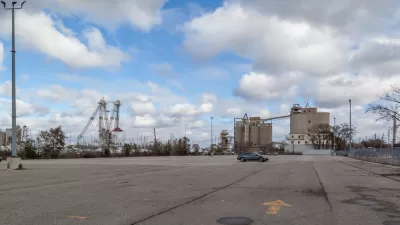The 'smart city' concept fails to take into account the necessary slowness of democracy and the unpredictability of a city's human inhabitants.

In an excerpt from her book A City is Not a Computer, author Shannon Mattern argues that the 'smart city' concept touted by Google's Sidewalk Labs and other technologists has not lived up to its promises, in part because the "move fast and break things" mentality typical of big tech runs up against the sometimes glacial pace of civic bureaucracy.
In an example from Toronto's Quayside project, the Sidewalk team "encountered, through the design process, the (often productive) slowness and friction of government bureaucracy and democratic deliberation." In the end, "[a]fter a long, messy process plagued by controversy over financing, governance, data privacy, and a host of other concerns, [CEO of Bloomberg LP Dan] Doctoroff took again to Sidewalk Talk in May 2020 to announce that the Quayside project was pulling the plug." According to local Sidewalk critic and public technology expert Bianca Wylie, "[w]hile the failure is certainly due in part to a changed world … this explanation brushes under the rug years of sustained public involvement in the project, from supporters and critics alike. From its inception, the project failed to appreciate the extent to which cities remain strongholds of democracy" and how the unpredictability of the human element makes it impossible to 'program' a city.
"[S]mart technologies often furnish convenient stopgap solutions; they provide a quick, and often lucrative, targeted fix that absolves leaders of the responsibility to investigate and resolve the root causes for health and racial injustices and systemic breakdowns." But while "Silicon Valley moves fast and breaks things," writes Mattern, "cities, if responsibly designed and administered, can’t afford such negligence—even if multiple converging crises seem to necessitate the rapid prototyping of urban solutions."
FULL STORY: Why high-profile smart cities fail, from Sidewalk’s Quayside to Amazon’s HQ2 in Queens

Planetizen Federal Action Tracker
A weekly monitor of how Trump’s orders and actions are impacting planners and planning in America.

San Francisco's School District Spent $105M To Build Affordable Housing for Teachers — And That's Just the Beginning
SFUSD joins a growing list of school districts using their land holdings to address housing affordability challenges faced by their own employees.

The Tiny, Adorable $7,000 Car Turning Japan Onto EVs
The single seat Mibot charges from a regular plug as quickly as an iPad, and is about half the price of an average EV.

Seattle's Plan for Adopting Driverless Cars
Equity, safety, accessibility and affordability are front of mind as the city prepares for robotaxis and other autonomous vehicles.

As Trump Phases Out FEMA, Is It Time to Flee the Floodplains?
With less federal funding available for disaster relief efforts, the need to relocate at-risk communities is more urgent than ever.

With Protected Lanes, 460% More People Commute by Bike
For those needing more ammo, more data proving what we already knew is here.
Urban Design for Planners 1: Software Tools
This six-course series explores essential urban design concepts using open source software and equips planners with the tools they need to participate fully in the urban design process.
Planning for Universal Design
Learn the tools for implementing Universal Design in planning regulations.
Smith Gee Studio
City of Charlotte
City of Camden Redevelopment Agency
City of Astoria
Transportation Research & Education Center (TREC) at Portland State University
US High Speed Rail Association
City of Camden Redevelopment Agency
Municipality of Princeton (NJ)




























